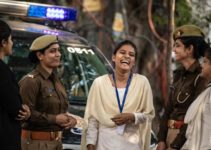How to Get Government Bank Jobs after Graduation | How to get a job in a bank after graduation | Government bank exams after graduation
Did you know how many people appear for government bank exams after graduation, every year?
Well, on an average 8 lakh people appear for just 1 of the 4 exams that we will be talking about here!
Now, that’s a huge number and so is the competition!
I am a commerce student and I recently decided to start preparing for government bank exams after graduation.
So, I opened Google and searched for “How to Get Government Bank Jobs after Graduation”.
I got plenty of information that I required!
But, there was an issue!
I could not find the complete information on any website or article. I had to scroll through so many articles.
Now, here’s some good news for you. You don’t have to do that!
I compiled all the information that I found on the internet, cross checked all the facts, and wrote this article for you!
So, if you are looking for information on how to get a job in a bank after graduation, trust me, this article will cover all your queries.
Banking sector jobs are prime in a country like India. Not only do you get a good pay and status, but also the benefit of limited working hours.
Coming to the banking jobs in the government sector, the benefits are countless!

Although, private banks are also great for future diversification. You should also read about getting a private bank job along with this blog.
Which is why so many candidates aspire to get government bank jobs after graduation.
(Although, you can also apply for bank jobs after 12th!)
How to Get Government Bank Jobs after Graduation?
As we all are aware of the craze for government jobs in India, I tried to focus on the jobs in public banks through this blog.

As far as government bank jobs are concerned, there are mainly two positions that you can apply for through exams as a graduate. These are:
1. Clerical
The clerical jobs include the pots like a clerk, typist, clerk-cum-cashier, agricultural clerks, steno, telephone operators, and data entry operators.
2. PO- Probationary Officer
You can understand from the name only that the candidates selected under this post will be under a probation period. Thus, the candidate’s performance will be analyzed during the training period, and then the hiring will be undertaken.
What are the Different Government Bank Exams After Graduation?
In India, four banking institutes conduct examinations for recruiting candidates for government banking posts. These are:
- The Institute of Banking Personnel Selection
- The State Bank OF India
- Reserve Bank of India
- National Bank For Agriculture And Rural Development
Now, here’s the part where I had to spend most of my time during the research. I had to search for each exam’s eligibility, syllabus, exam pattern, etc., on different websites.
But, I have compiled it all in this blog for your convenience and to save you some time.
Start scrolling then!
Note: Syllabus, criteria, and other things could change. It is advised to follow up with the official websites for the latest changes.
1. Institute of Banking Personnel Selection (IBPS)
The Institute of Banking Personnel Selection (IBPS) is a significant selection exam for banking institutions. Candidates appear for this exam to apply for various job roles. Banks recruiting candidates based on. IBPS marks are:
- Allahabad Bank
- Indian Bank
- Central Bank of India
- United Bank of India
- Syndicate Bank
- Indian Overseas Bank
- Andhra Bank
- Dena Bank
- Oriental Bank of Commerce
- Vijaya Bank
- Bank of Maharashtra
- Canara Bank
- Union Bank of India
- Punjab National Bank
- UCO Bank
- Corporation Bank
- Bank of India
- Punjab and Sind Bank
- ECGC
- Bank of Baroda
- IDBI BANK
IBPS PO Eligibility Criteria
Nationality- Indian citizen
Educational Qualifications- Graduate degree from a recognized University
IBPS PO Age Limit- Minimum 20 years of age and maximum 30 years
Number of Attempts– Unlimited
IBPS Clerk Eligibility Criteria
Nationality- Indian citizen
Educational Qualifications- Graduate degree from a recognized University
IBPS Clerk Age Limit- Minimum 20 years of age and maximum 28 years
IBPS PO Preliminary Exam Syllabus
1. Reasoning
Logical Reasoning, Alphanumeric Series, Ranking/Direction/Alphabet Test, Data Sufficiency, Coded Inequalities, Seating Arrangement, Puzzle, Tabulation, Syllogism, Blood Relations, Input-Output, Coding-Decoding.
2. Quantitative Aptitude
Simplification, Profit & Loss, Mixtures & Allegations, Simple Interest & Compound Interest & Surds & Indices, Work & Time, Time & Distance, Mensuration – Cylinder, Cone, Sphere, Data Interpretation, Ratio & Proportion, Percentage, Number Systems, Sequence & Series, Permutation, Combination & Probability.
3. English Language
Reading Comprehension, Cloze Test, Para jumbles, Miscellaneous, Fill in the blanks, Multiple Meaning/Error Spotting, Paragraph Completion.
IBPS PO Mains Exam Syllabus
1. Reasoning Section
Analogy, Odd Man Out, Syllogism, Coding-Decoding, Blood relations, Direction Sense, Sitting arrangement, Figure Series, Puzzles, etc
2. Quantitative Aptitude
Ratio & Proportion. Profit and loss, Simple interest, Mensuration, Permutation and Combination, Probability, Percentage, etc
3. English Language
Fill in the blanks, Cloze Test, Idioms & Phrases, Synonyms and Antonyms, One Word Substitution, Comprehensions, etc
4. General Awareness
International Economy, Indian Economy, Awards & Honors, Sports, Budget, Agriculture, Current Affairs, Finance, Shares, etc
5. Computer Knowledge
History of computers, MS Office, Operating Systems, Number System, Software & Hardware, etc
IBPS Clerk Prelims Syllabus
English Language
Reading Comprehension, Tenses Rules, Cloze Test(Fill in the Blanks), Jumbled Paragraphs, Idioms and Phrases, Multiple Meaning, Error Spotting Correction, Reading Comprehension, Preposition Rules.
Reasoning Ability
Logical Reasoning, Alphanumeric Series, Ranking, Data Sufficiency Tests, Coded Inequalities, Direction Test, Seating Arrangements, Puzzles, Tabulation, Syllogism, Input/Output, Coding and Decoding, Blood Relations.
Numerical Ability
Profit, Loss and Discounts, Quadratic Equations, Approximation and Simplification, Mixtures and Alligations, Simple and Compound Interest, Surds, and Indices, Work and Time, Speed, Time and Distance, Mensuration: Cone, Sphere, Cylinder, Data Interpretation, Ratio, Proportion and Percentage, Number Systems, Sequences and Series, Permutation, Combination, and Probability.
IBPS Clerk Mains Syllabus
General And Financial Awareness
Static GK – Static General Knowledge, Current Affairs, Banking Awareness, India’s Financial and Banking System, Budget and Monetary Plans of the Government, Key National Institutions, Basics of Banking.
General English
Vocabulary, Tenses Rules, Grammar, Idioms & Phrases, Reading Comprehension.
Reasoning Ability & Computer Aptitude
Reasoning Ability
Analogy, Assumptions and Statements, Syllogism, Coding and Decoding, Blood Relations, Sense of Direction and Distance, Alphanumeric Series, Non-Verbal Reasoning
Computer Aptitude
Basics of Hardware and Software, Operating Systems, Internet and associated topics, Microsoft Office and other word processing software, History of Computing, Basic Computer Networking, Basics of Databases, Basics of Cyber Security Tools and Processes
Quantitative Aptitude
Time, Speed and Distance, Ratio and Proportion, Work and Time Equations, Logarithms, Mixtures and Alligations, Stocks, Shares and Debentures, Percentages, Clock Ray Questions, Measures of Central Tendency and Basic Statistics( Mean, Average, Median, and Variance, etc.), Volume and Surface Area, Permutation and Combination, Partnerships, Simple and Compound Interest, Heights and Distances, Probability, Basic Trigonometry, Profit, Loss and Discounts, Basic Algebra, Data Interpretation, Charts, Bars and Graphs.
IBPS PO Preliminary Exam Pattern
| Exam | No. of Questions | Marks | Duration (min.) |
|---|---|---|---|
| English Language | 30 | 30 | 20 |
| Numerical Ability | 35 | 35 | 20 |
| Reasoning Ability | 35 | 35 | 20 |
IBPS PO Mains Exam Pattern
| Exam | No. of Questions | Marks | Duration (min.) |
|---|---|---|---|
| Reasoning and Computer Aptitude | 45 | 60 | 60 |
| English Language | 35 | 40 | 40 |
| Data Analysis and Interpretation | 35 | 60 | 45 |
| General, Economy/Banking Awareness | 40 | 40 | 35 |
Books for Preparation of IBPS Exams
So, These are some of the books that I suggest you use if you want to self-study for IBPS exam preparation.
I have personally ordered these books for myself too, and I find them quite helpful and interactive.
- Quantitative Aptitude for Competitive Examinations by R.S. Aggarwal
- IBPS PO 10 Year-wise Preliminary & Main Exams Solved Papers
- Mahendras Bank Kit English Latest Material 2021 (Combo of 5)
2. State Bank Of India (SBI)
The State Bank of India examination is conducted to fill posts in:
- SBI
- SBI Associate Banks
The State Bank of India conducts these exams to recruit candidates for posts like:
- Probationary Officer (PO)
- Clerk
SBI PO Eligibility Criteria
Nationality- Indian citizen
Educational Qualifications- Graduate degree from a recognized University
SBI PO Age Limit- Minimum 21 years of age and maximum 30 years
Number of Attempts– The number of attempts vary for the reserved and unreserved categories as:
- General – 4
- OBC – 7
- General & OBC (PWD) -7
- SC/SC(PWD)/ ST/ ST (PWD) – No Restriction
SBI Clerk Eligibility Criteria
Nationality- Indian citizen
Educational Qualifications- Graduate degree from a recognized University
SBI Clerk Age Limit- Minimum 20 years of age and maximum 28 years
SBI PO Prelims Syllabus
1. Quantitative Aptitude
Data Interpretation, Profit and Loss, Mensuration, Simple and Compound Interest, Surds and indices, Mixtures and Allegations, Permutation and Combination, Work, Time and Distance, Ratio & Proportion Percentage.
2. Reasoning Ability
Puzzles, Seating Arrangements, Blood relations, Direction Test, Syllogism, Coding-Decoding, Input-Output, Order and Ranking, Alphanumeric Series, and Data Sufficiency.
3. English Language
Reading Comprehension, Fill in the Blanks, Para Jumbles, Cloze Test, Paragraph Completion, Sentence Completion, Tenses Rules, Error Spotting.
SBI PO Mains Syllabus
1. Data Analysis & Interpretation
Tabular Graph, Line Graph, Bar Graph, Charts & Tables, Missing Case DI, Radar Graph Caselet, Probability, Data Sufficiency, Let it Case DI, Permutation and Combination, Pie Charts.
2. Reasoning
Linear Seating Arrangements, Blood relations, Direction Test, Syllogism, Coding-Decoding, Input-Output, Order and Ranking, Double Lineup, Code Inequalities, Scheduling, and Data Sufficiency.
3. English Language
Fill in the blanks, Cloze Test, Error Spotting, Para Jumbles, Word Association, Sentence Improvement, Vocabulary. Verbal Ability. Grammar, Reading Comprehension.
4. General Awareness
Current Affairs, Financial Awareness, General Knowledge, Static Awareness, Banking Terminologies Knowledge, Banking Awareness, Principles of Insurance.
5. English (Descriptive Test)
SBI Clerk Prelims Syllabus
1. Quantitative Aptitude
Equation and Algebra, Data Interpretation, Work and Time, Volume and Surface Area, Upstream and Downstream, Time and distance, Simplification, Surds and indices, Stock and shares, Simple interest, Compound interest, Sequence and series, Ratio & Proportion, Percentage, Profit and Loss, Probability, Permutation, and Combination, Averages, Partnership, Number System, Mixtures and Alligations, and Mensuration – Cylinder, Cone, Sphere.
2. Reasoning Ability
Puzzles, Seating Arrangements, Blood relations, Direction Test, Syllogism, Coding-Decoding, Input-Output, Order and Ranking, Statement and Assumptions, Inequalities, Alphanumeric Series, and Data Sufficiency.
3. English Language
Reading Comprehension, Fill in the Blanks, Sentence Rearrangement, Cloze Test, Synonyms and Antonyms, Sentence Correction, Idioms and Phrases, Vocabulary.
SBI Clerk Mains Syllabus
1. Quantitative Aptitude
Data Interpretation, Data Sufficiency, Profit and Loss, Mensuration, Simple and Compound Interest, Mixtures and Allegations, Permutation and Combination, Work, Time and Distance, and Number series.
2. Reasoning Ability
Puzzles, Linear Arrangements, Blood relations, Direction Test, Syllogism, Coding-Decoding, Machine Input-Output, Statement and Assumptions, Order and Ranking.
3. English Language
Fillers, Miscellaneous, Reading Comprehension, Sentence Rearrangement, Cloze Test, Synonyms and Antonyms, Sentence Correction, Idioms and Phrases, Vocabulary.
4. General Awareness
Current Affairs, Static General Awareness, Banking, and Financial Terms, Banking Abbreviations, Fiscal and Monetary Policy, Banking Awareness, Awards and Honours, Important Government Schemes, Indian Constitution.
SBI Preliminary Exam Pattern
| Exam | No. of Questions | Marks | Duration (min.) |
|---|---|---|---|
| English Language | 30 | 30 | 20 |
| Quantitative Aptitude | 35 | 35 | 20 |
| Reasoning Ability | 35 | 35 | 20 |
SBI Mains Exam Pattern
| Exam | No. of Questions | Marks | Duration (min.) |
|---|---|---|---|
| English Language | 40 | 40 | 35 |
| Quantitative Aptitude | 50 | 50 | 45 |
| Reasoning Ability | 50 | 60 | 45 |
| General A | 50 | 50 | 35 |
Books for Preparation of SBI Exams
Now, the syllabus for the State Bank of India exams and IBPS exams are quite similar, so the books that you might use for IBPS exam preparation can be used for these exams as well.
But, do not make the mistake of referring to just those books.
Because the syllabus is similar and not the same. Besides, the exam pattern differs. And, these books are supposed to help you develop reflexes for the exam to increase your speed.
And, if you keep on practicing the wrong pattern, it might just lead to reduced speed in your exam.
So, here are some of the books that I’ll suggest to you for exam preparation.
- Ultimate Guide for State Bank of India Clerk Prelim & Main Exams
- Comprehensive Guide to SBI Bank PO Preliminary & Main Exam
3. Reserve Bank of India (RBI)
The Reserve Bank of India conducts the RBI GRADE B OFFICERs exam to recruit graduates. It is one of the most prestigious and competitive exams in the country since millions of aspirants appear every year.
RBI Grade B Eligibility Criteria
Nationality- Indian citizen
Educational Qualifications- (i) Grade ‘B’ (DR) – (General)– Graduate degree in any discipline from a recognized University
(ii) Grade ‘B’ (DR) – DEPR- Master’s Degree in Economics / Quantitative Economics / Econometrics / Integrated Economics Course/ Mathematical Economics/ Finance OR
PGDM/ MBA Finance OR
Master’s Degree in Economics
(iii) Grade ‘B’ (DR) –DSIM- Master’s Degree in Statistics/ Econometrics/ Mathematical Economics/ Mathematical Statistics/ Statistics & Informatics from IIT-Kharagpur/ Applied Statistics & Informatics from IIT-Bombay OR
Master’s Degree in Mathematics and a one-year postgraduate diploma in Statistics or related subjects OR
M. Stat. degree of Indian Statistical Institute OR
Post Graduate Diploma in Business Analytics (PGDBA) jointly offered by IIT Kharagpur, ISI Kolkata, and IIM Calcutta
Age Limit-
Minimum – 21 years of age
Maximum –
- General – 30
- OBC – 33
- The persons with benchmark disabilities – 40
- SC/ST – 35
- Veterans – 35
- Ex-employees of Banking Institutions [Terminated for reasons of economy or bank going into liquidation] – 35
RBI Grade B (DR)-General Officer Prelims Exam Pattern
| Sections | No. of Questions | Marks |
|---|---|---|
| General Awareness | 80 | 80 |
| Quantitative Aptitude | 30 | 30 |
| English Language | 30 | 30 |
| Reasoning | 60 | 60 |
RBI Grade B (DR)-General Officer Mains Exam Pattern
| Sections | No. of Questions | Marks | Duration (min.) |
|---|---|---|---|
| Exam I: Economic and Social Issues 50% Descriptive & 50% Objective | 30 Objective 6 Descriptive out of which 4 have to be answered | 100 | 120 |
| Exam II: English (Writing) | 3 | 100 | 90 |
| Exam III: Finance and Management50% Descriptive & 50% Objective | 30 Objective 6 Descriptive out of which 4 have to be answered | 100 | 120 |
RBI Grade B (DR) Prelims Syllabus
1. General Awareness
Current Affairs, Indian Financial Systems, Indian Banking Systems, Monetary Plans, National Institutions, Banking Terms.
2. Quantitative Aptitude
Simplification, Mixtures & Alligations, Work & Time, Mensuration – Cylinder, Cone, Sphere, Profit & Loss, Simple Interest & Compound Interest & Surds & Indices, Time & Distance, Data Interpretation, Ratio & Proportion, Percentage, Permutation, Combination & Probability, Number Systems, Sequence & Series.
3. English Language
Paragraph Completion, Multiple Meaning /Error Spotting, Fill in the blanks, Miscellaneous, Para jumbles, Cloze Test, Reading Comprehension.
4. Reasoning
Coding-Decoding, Input-Output, Blood Relations, Syllogism, Tabulation, Puzzle, Seating Arrangement, Coded Inequalities, Data Sufficiency, Ranking/Direction/Alphabet Test, Alphanumeric Series, Logical Reasoning.
RBI Grade B (DR) Mains Syllabus
1. Economic & Social Issues
Growth and Development, Globalization, Economic Reforms in India, Social Structure in India.
2. Finance
Financial System, Inflation, Risk Management, Basics of Derivatives, Financial Markets, Union Budget, Development in Financial Sector.
3. Management
Role of Manager, Corporate Governance, Motivation, Morale and Incentives, Human Resource Development, Communication.
Books for Preparation of RBI Exams
- Reserve Bank of India RBI Officers Grade B Exam- Arihant
- Data Interpretation Decoded: DI and Data Sufficiency
- Quantitative Aptitude for Competitive Examinations by R.S. Aggarwal
In my personal opinion, the Quantitative Aptitude by R.S. Aggarwal is a very useful book and also very versatile.
You can refer to it for the numerous competitive exams.
And, I say, even if you are not going to prepare for any competitive exam, still you should go through this book.
It will be helpful to you during placements and interview exams.
The RBI Grade B exam needs consistent hard work and practice as it is very difficult to crack.
The average pass percentage is just 0.1%!

4. National Bank For Agriculture And Rural Development (NABARD)
NABARD stands for the National Bank for Agriculture and Rural Development. It recruits Grade A and Grade B Officers for managerial roles all across India.
NABARD Grade A is the exam for recruiting candidates for Assistant Managerial posts all across the country.
NABARD Grade A Eligibility Criteria
Nationality- Indian citizen
Educational Qualifications-
- General Post- Graduate degree in any discipline from a recognized University
- General Agriculture- Bachelor’s Degree in Agriculture
- Agriculture Engineering- Bachelor’s Degree in Agriculture Engineering
- Food Processing- Bachelor’s degree / BE / B.Tech. in Food Processing /Food Technology
- Environment- Bachelor’s degree with Environmental Science/Environmental Engineering
- Land Development (Soil Science-)– Bachelor’s Degree in Agriculture/Agriculture (Soil Science/Agronomy)
- Agriculture marketing/Agri-Business Management- Bachelor’s Degree in Agriculture Marketing/ Agriculture Business Management
- Agricultural Economics/Economics- Bachelor’s Degree with Economics/Agriculture Economics
- Geo Informatics- BE/B Tech/BSC degree in Geoinformatics
- Information Technology- Bachelor’s Degree in Computer Science/ Applications/ Computer Technology/ ComputerInformation Technology
- Company Secretary- Bachelor’s degree in any discipline with Associate membership of ICSI
- Chartered Accountant- Bachelor’s degree in any discipline with Membership of ICAI
- Finance- BBA (Banking/Finance) / BMS
- Statistics- Bachelor’s Degree in Statistics
- Human Resource Management- BBA/ BBM/ BMS in Human Resource Management
NABARD Grade A Age Limit- Minimum 21 years of age and maximum 30 years
NABARD Grade B Eligibility Criteria
Nationality- Indian citizen
Educational Qualifications- Graduate degree in any discipline from a recognized University
NABARD Grade B Age Limit- Minimum 21 years of age and maximum 35 years
NABARD Grade A Prelims Exam Pattern
| Exam | Marks |
|---|---|
| English Language | 40 |
| Quantitative Aptitude | 20 |
| Test of Reasoning | 20 |
| General Awareness | 20 |
| Computer Knowledge | 20 |
| Agriculture and Rural Development | 40 |
| Economic and Social Issues | 40 |
NABARD Grade A Mains Exam Pattern
| Exam | Marks |
|---|---|
| Exam 1 For All Posts– General English | 100 |
| Exam 2 For General Post – Economic & Social Issues and Agriculture & Rural Development | 100 |
| Exam 2 For Other Posts – Related to the discipline of the post | 100 |
NABARD Grade B Prelims Exam Pattern
| Exam | Marks |
|---|---|
| English | 40 |
| Reasoning | 20 |
| Quantitative Aptitude | 20 |
| General Awareness | 20 |
| Computer | 20 |
| Economic & Social Issues | 40 |
| Agriculture & Rural Development | 40 |
NABARD Grade B Mains Exam Pattern
| Exam | Marks |
|---|---|
| General English | 100 |
| Economic & Social Issues Agriculture & Rural Development | 100 |
| Development Economics, Statistics, Finance & Management | 100 |
NABARD Grade A Prelims Syllabus
1. English Language
Reading Comprehension, Sentence improvement, Cloze test, Spotting the errors, Sentence rearrangement, Fill in the blanks, New pattern questions, Para Jumbles.
2. Quantitative Aptitude
Quadratic Equations, Data Interpretations, Number Series, Data Sufficiency, Simplification/ Approximation, Arithmetic Questions, Mathematical Inequalities, Quantity Comparisons.
3. Reasoning Ability
Syllogism, Coding-Decoding, Puzzles & Seating arrangement, Data sufficiency, Inequality, Statement based questions (Verbal reasoning), Miscellaneous Questions, Blood relations, and Input-Output.
4. General Awareness
Current Affairs, Banking and Economy, Insurance, Latest Developments in Science and Technology, Recent appointments, Sports, New Schemes, Awards, and Honors, National and International News.
5. Computer Knowledge
Networking, DBMS, Input-output devices, MS Office, History of computers & generations, Internet, and Shortcuts.
NABARD Grade A Mains Syllabus
1. English Language
Essay, Précis writing, Business/Office Correspondence, Comprehension, Understanding of the topic and Expressions.
2. Economics and Social Issues
Nature of Indian Economy, Poverty Alleviation and Employment Generation in India, Agriculture, Rural banking and financial institutions in India, Social Structure in India, Social Justice, Positive Discrimination in favor of the underprivileged, Education, Globalization of Economy, Industry, Inflation.
3. Agriculture & Rural Development
Agriculture, Water Resource, Plantation & Horticulture, Fisheries, Agriculture Extensions, Present Scenario of Indian Agriculture and Allied Activities, Ecology and Climate Change, Forestry, Animal Husbandry, Farm and Agri Engineering, Soil, and Water Conservation.
NABARD Grade B Prelims Syllabus
1. Reasoning Ability
Puzzles, Linear Seating Arrangement, Seating Arrangement, Data Sufficiency, Syllogism, Inequality, Statement Based Questions (Verbal Reasoning), Input-Output, Blood Relations.
2. Quantitative Aptitude
Data Interpretation, Number Series, Quadratic Equations, Simplification/ Approximation, Data Sufficiency, Profit And Loss, Average, Age, Simple And Compound Interest, Boat And Stream, Time, Work And Area.
3. English Language
Reading Comprehension, Sentence improvement, Cloze test, Spotting the errors, Sentence rearrangement, Fill in the blanks.
4. General Awareness
Current Affairs, Banking and Economy, Insurance, Latest Developments in Science and Technology, Recent appointments, Sports, New Schemes, Awards, and Honors, National and International News.
5. Computer Knowledge
Networking, DBMS, Input-output devices, MS Office, History of computers & generations, Internet, and Shortcuts.
NABARD Grade B Mains Syllabus
1. English Writing
Essay, Comprehension, Précis Writing, Report Writing, Business/Office Correspondence, and Paragraph Writing.
2. (A) Economic And Social Issues
Nature Of Indian Economy, Poverty Alleviation And Employment Generation In India, Inflation, Population Trends, Rural Banking And Financial Institutions In India, Industry, Globalisation Of Economy, Social Structure In India, Positive Discrimination In Favour Of The Under Privileged, and Social Justice.
2. (B) Agriculture & Rural Development
Agriculture, Agronomy, Problems Of Dry Land, Classification Of Field Crops, Soil And Water Conservation, Plantation & Horticulture, Farm And Agri Engineering, Animal Husbandry, Forestry, Fisheries, Agriculture Extensions, Present Scenario Of Indian Agriculture And Allied Activities, Ecology, And Climate Change.
Books for Preparation of NABARD Exams
Listen Up!
Now, I mentioned this in the very beginning that this article is for those who are planning to prepare for competitive examinations without any coaching.
But, this does not mean that it is not relatable for the ones who are going for or planning to go for coachings. This blog will be highly helpful in maintaining a record for your preparation.
Although, it does not matter whether you go for coaching or not, to clear such competitive exams you have to necessarily put in the self-study efforts to get great results.
Therefore, relying on the coaching centres alone might be damaging.

But, as an aspirant, I can surely say that this article is a huge help as it compiles all the information at one place.
So, to be clear, I am not bragging! Just saying that I tried to add all the necessary information to it.
Make sure you share this blog as much as you can with the aspirants you know. It will be helpful to them.
Also, if you want me to include anything else in this article, feel free to mention it in the comments section below. Your feedback is really helpful to me.


